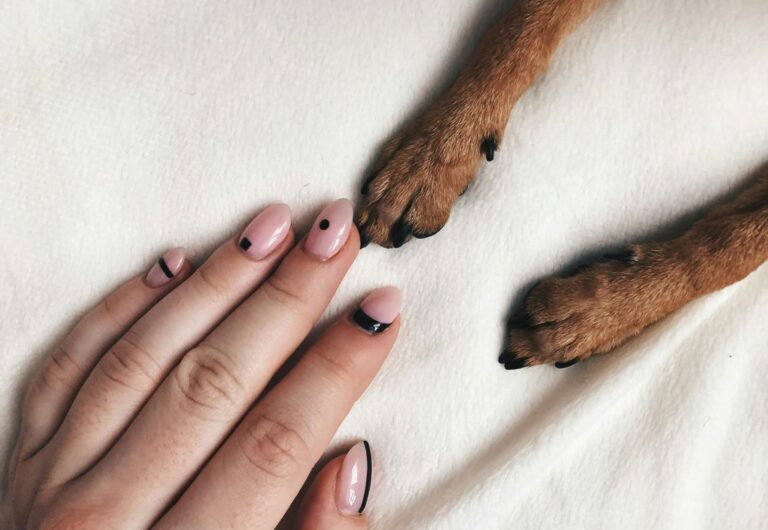Comforting Words for Pet Loss: Support Grieving Pet Parents
Some links in this post are affiliate links. This means if you purchase something through my links I may make a small commission at no extra charge to you. See my disclaimer.
When someone you care about loses a beloved pet, it’s natural to want to support them after their loss, but sometimes, finding the right words that are actually comforting feels impossible.
What can you say that won’t sound cliché? What if you say the wrong thing and make it worse?
The truth is, when someone is grieving a pet, they aren’t looking for perfect words. They’re looking for kindness, recognition, and warmth. They want to know their pain is valid and that their beloved companion mattered.
If you’re here, it’s likely because someone you care about is hurting, and you’d like to support them without making things worse. They may have lost a pet suddenly or after a long life together, and you want to be there for them. You might be unsure of what to say, what to do, or be afraid of saying something that amplifies the hurt.
This guide is here to help you offer that comfort, not with platitudes of scripts, but with gentle, sincere words and supportive actions that speak directly to the heart. It’s here to provide tips so you can be there for support when needed.
Why pet loss hurts so deeply
Pets are not “just animals.” They’re family. They’re daily companions, emotional anchors, and sources of unconditional love. When someone loses a pet, they lose a relationship built on trust, routine, and silent understanding.
Sadly, this type of grief is often underestimated or dismissed by others. That makes your words, when chosen with care, even more powerful. You have the chance to offer real comfort in a moment that might feel very lonely for them.
How to Offer Comfort: Words That Genuinely Help
When you’re comforting someone who has lost their pet, the most meaningful thing you can do is speak from the heart. You don’t need to deliver the perfect sentence; what matters most is that your words are sincere, respectful, and acknowledge the depth of their grief.
They are likely working through the 10 stages of grief already, which can feel exhausting and overwhelming. They might be learning about each step of grief for the first time as they walk through it, so your words might be a soft anchor during this difficult time.
Think of it this way: You’re not trying to “cheer them up”. You’re trying to let them know that they’re not alone in their sadness.
Here are a few examples of messages that often bring comfort:
Acknowledging Their Pain
Sometimes, simply affirming that their grief is real is the most powerful thing you can do.
“I know how much [pet’s name] meant to you, I’m so sorry you’re going through this.”
“Losing a pet is losing family. It’s okay to grieve however you need to.”
“You loved them so well, and they loved you just as fiercely.”
Honouring their pet’s legacy
Many grieving pet parents want to hear comforting words that remind them their animals won’t be forgotten.
“[Pet’s name] had such a sweet soul. I’ll never forget how happy they looked when they ran across the park.”
“You gave them such a beautiful life. That’s something not every pet gets.”
“They were so lucky to have had you. And I know you feel lucky to have had them, too.”
Don’t be afraid to use their friend’s name. It reminds the grieving person that their loss is personal, unique and worth remembering.
Offering Gentle Support
It can be hard to know how to be there for someone, but often, it starts with giving them permission to grieve in their own way and offering an invitation to share.
“I can’t imagine how much this hurts, but I’m here for you in whatever way you need.”
“If you ever want to tell me more about them, I’d love to hear.”
“I’m here to listen, cry, or sit in silence with you. Whatever you need.”
“Take all the time you need. Grief doesn’t have a deadline.”
These types of words remove pressure and open the door for a real emotional connection; exactly what’s needed when someone is deep in grief and open to support.
These kinds of messages and phrases work well whether you’re speaking face-to-face, sending a text, writing a sympathy card, or leaving a comment online. What matters most is that you’re acknowledging their pain and honouring the relationship they had with their pet.
A Note On Tone
When offering comforting words surrounding the loss of a pet, it’s best to keep your tone gentle and low-pressure. Avoid statements that start with “At least…” or try to explain or justify the loss.
Even logical phrases that aim to be comforting (such as “They’re in a better place now”) can unintentionally make someone feel their grief is invalidated. This can lead to them feeling ashamed for feeling the way they do.
Instead, trust that your presence and your willingness to acknowledge their pain already make a difference.
What Not to Say When Trying to Offer Comforting Words for Pet Loss
Sometimes, even the kindest people can say the wrong thing when they don’t know what to say.
Even when you have the best intentions at heart, you need to be mindful that everything you say while comforting someone with words about pet loss can leave an impact. That impact can be negative or positive, which is why it’s important to be careful.
When someone is grieving a pet, it’s easy to fall back on familiar phrases you’ve likely heard multiple times before, however, not all of them are helpful. Even if you mean well, your words can unintentionally minimise the loss and make them feel worse in the moment
Below are a few things to avoid, along with what you can say instead.
Common Phrases That are Unhelpful
“At least it was just a dog/cat.”
Why this hurts: This invalidates their relationship entirely. For many, pets are family. Hearing this can feel like you’re saying their pain doesn’t matter.
Instead, try: “I know how much they meant to you, and that kind of love runs deep.”
“You can always get another one.”
Why this hurts: This phrase makes pets sound replaceable, as though their unique personality and bond didn’t matter. You wouldn’t dream of saying this about the loss of a person, so it’s not helpful for the loss of a pet either.
Instead, try: “No other pet could ever take their place. They were truly special.”
“They had a good life, it was just their time.”
Why this hurts: While it may be true, this can feel like you’re trying to “close the book’ on their grief too soon.
Instead, try: “You gave them such a beautiful life, and they gave you so much love in return.”
“Everything happens for a reason.”
Why this hurts: In the rawness of grief, people often aren’t looking for meaning. They’re just trying to survive the heartbreak.
Instead, try: “I don’t have the right words, but I’m here with you, and I’m sorry for your loss.”
“It’s been a while… shouldn’t you be over it by now?”
Why this hurts: Grief isn’t linear, and there’s no expiration date. Pushing someone to “move on” only isolates them more.
Instead, try: “I know some days might still feel heavy. I’m here for you, even now.”
“They’re in a better place now.”
Why this hurts: Even if meant spiritually, this can feel dismissive, especially if the person grieving would give anything to have their pet here.
Instead, try: “I hope the thought of them at peace brings you some comfort, but I know that doesn’t take away the pain right now.”
Final Tip
When in doubt, listen more than you speak. If you don’t know what to say, honesty can be powerful and safe too: “I don’t have the right words, but I want you to know I care, and I’m so sorry for your loss.”
– That simple sentence can mean the world.
These kinds of statements try to “solve” the grief, but grief isn’t a problem to fix. It is a slow process of support and feeling. When helping someone with comforting words while they are grieving their pet loss, stick with empathy instead of logic.
Offer Space, Not Solutions
Sometimes, the best comfort isn’t a phrase, it’s simply being there as a crutch of support, even if you’re not *doing* anything.
Simply having the presence of someone they care about in the same room can often offer much more support than you may realise.
Let your loved one talk about their pet. Let them cry, laugh, reminisce, or sit in silence. If you’d like to help, you can help guide them with gentle questions like:
- “What was their favourite thing to do?”
- “Do you have a favourite memory of them?”
- “What did they teach you?”
Simple questions like these can help them feel seen during their difficult stages of grief, not rushed through the process, but instead welcome their memories in an honourable way.
Comforting Gestures That Speak Volumes
If you’ve used comforting words to support your loved one through their pet loss and you’re not sure there’s anything else you can say, you can consider a thoughtful gesture in place of the words.
Sometimes words feel too fragile, and simple acts of kindness can mean everything:
Send a sympathy card or pet-themed condolence note
Whether its a card just letting them know yoou’re thinking of them, or something that reminds them of the loved they shared, this can make them feel seen in the moments of grief.
Light a candle in their pet’s memory and let them know
Lighting a candle is a quiet but powerful symbol. It’s a way to honour their pet’s spirit and let your friend know that their loss matters to others, too.
Share a photo you have of their pet
Seeing a photo of their much-loved pet can make them sad in the immediate moment, but it often helps them remember positive thoughts and memories of their furry friend.
Offer some memorial ideas
Memorials and keepsakes are great ways to honour a pet’s memory after they’ve gone. If you know them well, you could gift them a personalised keepsake or help them make a memorial of their pet. There are many ways to memorialise family pets.
Donate to a rescue or shelter in the pet’s name
This gesture turns grief into kindness. It shows that their beloved pet’s life continues to make a difference to others.
Invite them to visit our Rainbow Bridge Remembrance Wall to honour their furry friend
Lighting a candle on this page and seeing all the other pet’s who have been lost before, can bring comfort to those who find comfort in shared grief. Although you wouldn’t wish someone else to feel this loss, it can feel comforting to know you’re not going through it alone.
Final thoughts: Your Comforting Words Matter More Than You Know
When someone loses a pet, their world can feel quieter, lonelier, and misunderstood. But your kindness, your choice to show up and speak gently, is a powerful help to their pain.
Remember, you don’t need to say the perfect thing. Just saying *something* with love, compassion, and presence is often enough.
“Your words might not take away the grief. But they remind someone they’re not grieving alone, and that is everything when the grief feels heaviest.”
If you’d like to look at more comforting words and quotes, we have a few posts you may find helpful:






